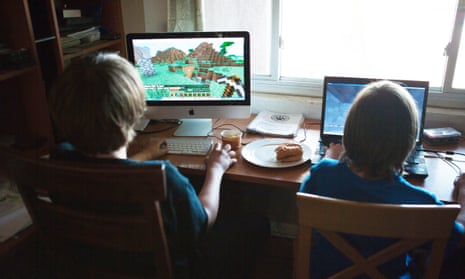Online video games are to blame for a decline in young men entering higher education. This is the neat claim made in a recent op-ed published by the Times under the subheading “The gender imbalance in higher education may not be as complicated as it looks”. Emboldened by a recent report from the Higher Education Policy Institute, which found that boys were 10 times as likely to play collaborative online games than girls, the author repeats its assertion that “the gender gap in video gaming translates into a performance advantage for girls”. Not correlation, then, but grim causation: play video games, drop grades.
The gender gap in higher education in the UK is growing. Women now outnumber men in higher education by six percentage points. Ninety-four thousand fewer men than women applied for university places this academic year, reportedly the largest gap on record. More men drop out before graduating and fewer achieve 2:1 degrees or firsts. Within the 18-24 age bracket, 70,000 more men than women are registered as unemployed. Why the yawning gender gap? The most compelling explanation for the “male retreat” from higher education is, the Times leader claims, that boys “work less hard” and “waste more time”, particularly on the virtual pitch.
As a broadly solitary pleasure, video games are easily aligned with pornography and crosswords as a form of selfish and pointless gratification. For the few residual generations who did not grow up with video games, they provide an easy target for all manner of ills: violence, delinquency, the scourge of education. Stories of video games’ nefarious effects have followed the medium since its inception. In 1981, Labour MP George Foulkes described the profits made by arcade machines as “blood money extracted from the weakness of thousands of children”. In 1982, US surgeon general Dr Everett Koop said that teenagers were becoming addicted “body and soul” to video games, a form of entertainment in which “there’s nothing constructive”.
Thirty-five years later, these accusations have largely endured. Any player knows that this medium, in its glorious marriage of art and science, has the capacity to teach skills both dextrous and cerebral. Scepticism, however, remains. The studies, meanwhile, do not back up these claims. In March, a paper published by Columbia University’s Mailman School of Public Health found that high video-game usage was associated with an increased probability of high intellectual functioning and overall school competence. The researchers found that more video-game playing was associated with lower relationship problems between peers.
Of course, parents should monitor their children’s leisure habits and limit screen time (even if maximum screen time is, arguably, the ideal preparation for the contemporary workplace). Of course parents should take an interest in their children’s hobbies, their latest creations in Minecraft or the tactics they’ve developed in an Overwatch match. The Times’s argument amounts to little more than “distracting things can be distracting”. It’s a statement so banal it’s hardly worth the ink.
No, this is a philosophical quarrel about the nature and role of play. Play is widely understood as the preparation for adult life, a juvenile pursuit to be cast off with maturity’s arrival. It’s a viewpoint at odds with the wisdom of our forebears. “Play so that you might be serious,” said Anacharsis in 600BC. The great writer and theologian GK Chesterton went further still. “The true object of all human life is to play,” he wrote in 1908’s All Things Considered. “Earth is a task garden; heaven is a playground.” You may balk at the idea of a celestial arcade. Better to scorn the greater threat to the educational development of our children: the decline of nuance, a failure writ ever larger both in the words of ascendant political leaders and those written in the pages of newspapers.







